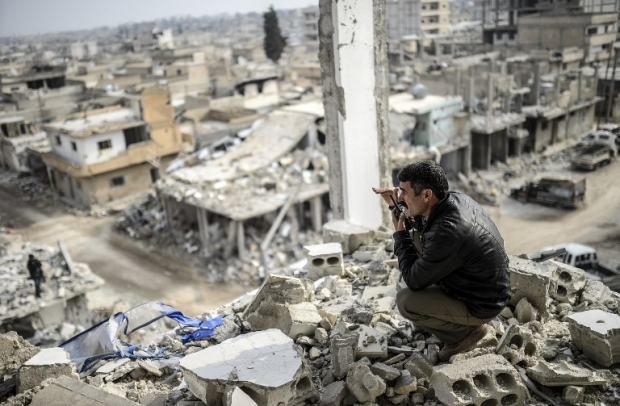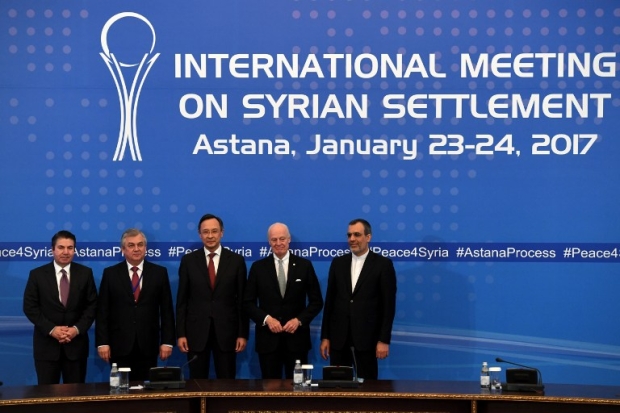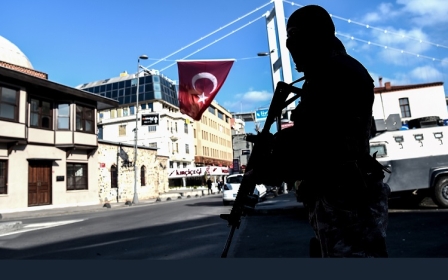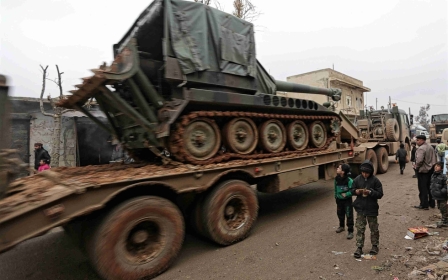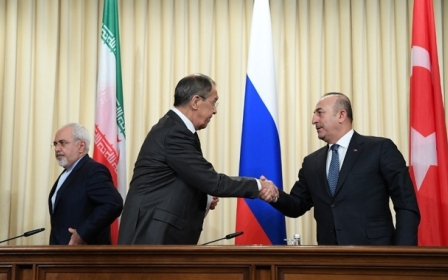From St Petersburg to Astana: The Russian-Turkish accord has run its course
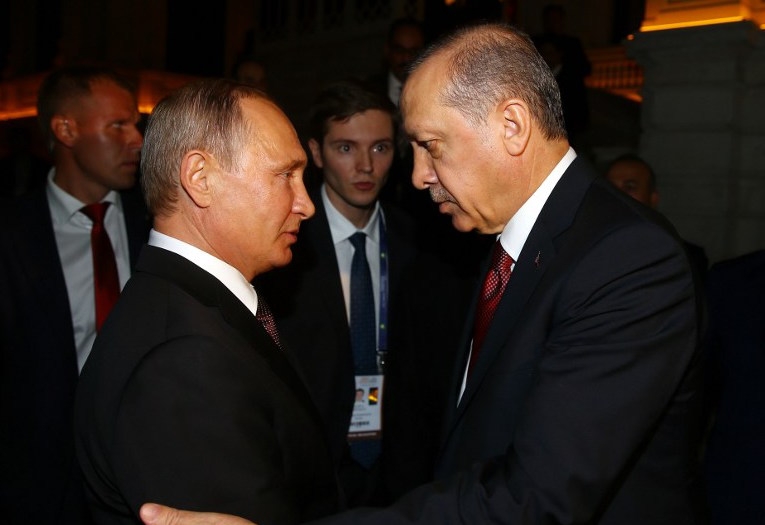
On 9 August 2016, Turkish President Tayyip Recep Erdogan met his Russian counterpart Vladimir Putin in St Petersburg.
Since Turkey was still preoccupied at the time with confronting Fethullah Gulen's organisation which was accused of carrying out the failed 15 July coup attempt, it is certain that the decision to go to St Petersburg was taken long before it happened.
Following the estrangement between the two countries after the Turkish air force shot down a Russian fighter plane in November 2015, Turkish-Russian reconciliation was accomplished toward the end of June. The St Petersburg meeting was held to bolster the renewed rapprochement.
Or this is at least the impression that was given from the remarks made by Erdogan and Putin at the time.
However, subsequent events revealed that the St Petersburg summit actually laid the foundations for a much bigger accord between Turkey and Russia. The question now is how much longer will this accord prove fruitful.
American ally no more
Over the course of 2016, Turkey’s relations with its traditional American ally and with the European Union significantly deteriorated. This followed what seemed like a long honeymoon the Erdogan government enjoyed with Washington during Obama’s first term in office.
The truth is that some Turkish officials found it impossible to accept that the American intelligence services did not have prior knowledge of the coup attempt
By 2013, misgivings and disagreements started afflicting relations between the two countries. The Obama administration turned down a Turkish proposal to establish safe havens inside Syria and also reneged on its own pledge to take action in response to the Assad regime's use of chemical weapons against its own people.
Although Washington expressed opposition to the coup in Egypt, suspicions grew in Ankara to what extent Washington had known a military coup was coming.
As the Islamic State (IS) expanded within Iraq and Syria, Ankara and Washington started exchanging blame. The Americans accused the Turks of failing to maintain tight control over their borders with Syria. The Turks, in turn, responded by asserting that the US's inept policy in Syria was what had enabled IS to expand progressively across the region.
READ: Can Turkey and Russia push back Iran in Syria?
After the operations to free the Syrian city of Kobane from an IS siege that was eventually broken in early 2015, the Americans established an alliance with the Syrian branch of the Kurdish Workers Party (PKK), a move considered by Ankara to pose a direct threat to its national security.
In September 2015, Russia became directly involved in the Syrian crisis, entirely throwing off the conflict's balance of power. When the Americans expressed readiness to coordinate with the Russians, the Turks became more convinced than ever that the Obama administration had completely abandoned the Syrian people.
And although Turkish officials found no evidence that there had been an American or European role in the coup attempt, the early reactions from Washington and several European capitals was not reassuring.
The truth is that some Turkish officials found it impossible to accept that the American intelligence services did not have prior knowledge of the coup attempt, not only because of the presence of Fethullah Gülen in Pennsylvania but also because of the close ties linking the generals of the Turkish army with their American colleagues.
On top of that, the statement made by US Secretary of State John Kerry in the early hours of the coup were not decisive in condemning the attempt to topple an elected government of an important ally.
Europe's Gulenist safe haven
Ankara’s disappointment with the European stance was no less profound. Most of the European countries, especially Germany, waited before they denounced the coup attempt and supported the legitimate Turkish government. Then, when Ankara started taking action against the Gulen organisation, within as well as outside state institutions, European states were quick to express concern about the purge and to criticise the Turkish government.
Meanwhile, several major European cities, not just those in America, turned into shelters for dozens of businessmen and politicians belonging to the Gulen organisation.
READ: Turkey: Why the West should show more support
Furthermore, and despite repeated Turkish queries, not a single European country took any actions against PKK activists who turned Europe into a major arena for fundraising and recruiting as well as for their media activities.
So by the summer of 2016, Turkey concluded that it was facing a massive imbalance of power in its neighbourhood, especially within the Syrian arena which had turned into a hub for regional and international interplay, and that it could no longer feel comfortable about the policies adopted by its Western allies, whether in the US or in Europe.
This is what drove Turkey to move toward Russia, which emerged as the predominant force in the Syrian crisis.
But the Turkish decision to open up to Russia was not unilateral. For several reasons, not least because of his realisation that no military solution was possible for the Syrian crisis, Putin, too, wished to bolster relations with Turkey.
Euphrates Shield
And this brings us back to the St Petersburg summit, during which the Turks and Russians agreed to expedite the normalisation of economic and trade relations between the two countries. Those relations had suffered considerably as a result of the crisis that followed the downing of the Russian fighter plane.
'Euphrate Shield', which involved Turkish military support for the Free Syrian Army, could not have taken place without Russian consent
Yet, what was more important was the unprecedented Turkish military action on 24 August 2016 along the borders with Syria with the aim of cleansing the area of IS forces and of preventing the troops of the Kurdish Democratic Union party, the Syrian branch of the PKK, from stretching their control to the west of the Euphrates.
The operation, named “Euphrates Shield”, which involved providing tangible Turkish military support to the Free Syrian Army, could not have taken place without Russian consent.
During subsequent months - and although the “Euphrates Shield” operation that was directed toward the town of Al-Bab right in the Syrian heartland required a new Turkish-Russian agreement - the Russian air force provided the Turkish troops and the forces of the Free Syrian army, which laid siege to Al-Bab, with direct support at least on two occasions.
In contrast, Ankara did not inform the Americans about the “Euphrates Shield” operation until just hours before its launch. Despite the fact that IS was the main target of the operation, when they did learn of it, the Americans treated “Euphrates Shield” as an activity taking place outside the remit of the international coalition against terrorism.
A mutual understanding
On 18 December, the Russian military reached an agreement with the armed factions of the Syrian opposition to evacuate eastern Aleppo and provide safe passage for the civilians and armed individuals who were under siege inside the city.
The Astana meeting seems to have been the end of the usefulness of the Turkish-Russian agreement, launched in St Petersburg
Despite the sharp criticism levelled at the agreement, which was considered another episode of ethnic cleansing in Syria, it is certain that the agreement would not have been possible without Turkish support and backing.
Only a few days later, Ankara was hosting unprecedented talks between Russian officials and representatives of a wide range of armed Syrian groups. The outcome became known as the Ankara ceasefire agreement.
Then the Astana meeting was held on 23 and 24 January with the aim of reinforcing the ceasefire and finding a mechanism to monitor violations.
READ: Russia, the middleman keeping Turkey and Syria from clashing
Although the meeting brought together representatives of the Damascus regime and of the armed opposition in the presence of Russian, Iranian and Turkish representatives, it was obvious that the Astana meeting could not have been held without a Turkish-Russian mutual understanding.
The Astana meeting was not a Turkish idea but a Russian project through which Putin wanted to assert his role as a mediator, as a solution provider and as a peacemaker. Perhaps the Russians wished for the Astana talks to become an alternative to those in Geneva.
In the end, the parties agreed that the Astana meeting should be confined to consolidating the ceasefire and that talks should return to Geneva to revisit the toughest issues.
Not only would Geneva provide an international umbrella, but it could also bring together all the parties concerned including, foremost, the Americans themselves. As such, the Astana meeting seems to have been the end of the usefulness of the Turkish-Russian agreement, launched in St Petersburg. From now on, they will have to wait and see what the US position will be.
- Basheer Nafi is a senior research fellow at the Al Jazeera Centre for Studies.
The views expressed in this article belong to the author and do not necessarily reflect the editorial policy of Middle East Eye.
Photo: Turkish President Recep Tayyip Erdogan embraces Russian President Vladimir Putin as he leaves Mabeyn Palace, Istanbul on 10 October 2016 (AFP).
This article is available in French on Middle East Eye French edition.
New MEE newsletter: Jerusalem Dispatch
Sign up to get the latest insights and analysis on Israel-Palestine, alongside Turkey Unpacked and other MEE newsletters
Middle East Eye delivers independent and unrivalled coverage and analysis of the Middle East, North Africa and beyond. To learn more about republishing this content and the associated fees, please fill out this form. More about MEE can be found here.



